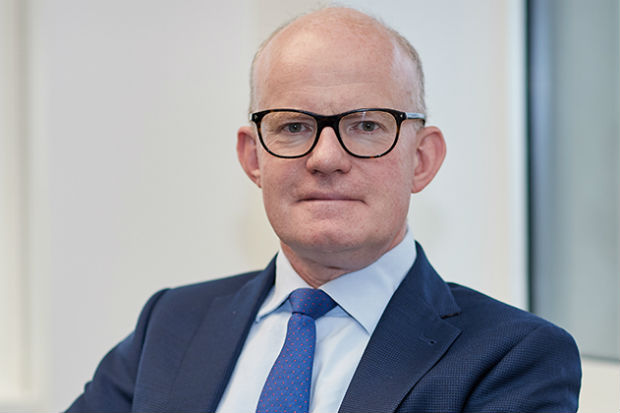
It was a great privilege to join the Civil Service last November as the Director of Public Prosecutions (DPP) and head of the Crown Prosecution Service (CPS).
For the previous 31 years I had been a criminal barrister in private practice, and so had worked with the CPS throughout my career – prosecuting cases in court on its behalf and defending cases the CPS brought against my clients. For those who aren’t aware, the CPS prosecutes criminal cases that have been investigated by the police and other government departments across England and Wales, such as the NCA, HMRC and the DWP. Although part of the Civil Service, we are independent, and make our decisions independently of the police and government.
Working in private practice gave me a wealth of opportunity. I have worked with some incredibly talented and hardworking colleagues and in an environment with a real sense of camaraderie. And yet, since taking up my new role as DPP, I have already been equally impressed by the talent and dedication of everyone I have come to know. I have found, across the CPS, committed and highly skilled people determined to do right.
Learning and development
What is also clear to me is the focus on career development here. Having arrived just before the People Survey results were announced, I was pleased to find that within the CPS our scores around learning and development have been going up year on year for the past four years. I’m keen for this trend to continue.
The CPS gives every member of staff an Individual Learning Account to spend on their development and has heavily invested in line managers, all of whom have the opportunity to gain an accredited management qualification. There is also a legal apprenticeship scheme and a website that helps CPS employees plan their career pathway. These are just a few examples, forming part of a much wider learning and development strategy.
Ensuring we equip ourselves for the future is essential. The pace of change is rapid, we must keep our skills sharp and continue to expand our knowledge and ability. This doesn’t always need to be through courses, and I am keen to see more secondments within the CPS and across other government departments to share skills and knowledge.
Quality of work
Along with supporting career development for everyone in the CPS, finding out more about my colleagues and getting a better understanding of the organisation is a key priority for me.
The CPS, like many other departments, is based all over the country, in fact right across the world. As much as I’d like to be able to quickly get around and meet every single colleague – and I am out and meeting people face to face as much as possible – I’ve also been taking time on a daily basis to ring individual colleagues to hear more about their work and their ideas. This has been hugely beneficial, especially as we are about to start work on our 2025 strategic plan.
This has also given me a clear picture of the quality of work and the success of the organisation – not just in individual cases but also in adapting to the changing nature of crime. For example, the number of our human trafficking and modern slavery cases has grown significantly in recent years, and these cases have become even more complex. Tackling these crimes is a government priority – all parts of the system are focused on it, and we are playing our part by aggressively pursuing new legislation to good effect. We have put concerted effort into ensuring we have the skills in place to prosecute effectively and improve the global response to these crimes.
Recognition of success
You may have seen that one of our successes in this area – a complex case last year resulting in the conviction of three defendants for human trafficking and modern slavery cases against four young Vietnamese females – was featured in the BBC documentary series The Prosecutors last autumn. I am pleased to say that the lawyer who led the case was one of five CPS colleagues recognised in the Queen’s New Year Honours.
This was very welcome, because too often the positive work carried out by the CPS – and, I am sure, other parts of the Civil Service – is not seen, not understood and not recognised.
Of course it is only fair that we are all scrutinised for the service we provide to the public, and challenged when mistakes are made. But, at the same time, we must make sure that the service we provide is understood and our successes are recognised. Changing public perception is a challenge across the Civil Service, not just for the CPS. Although it will take time, I believe we have the talent, dedication and experience to do this.
While 2019 is still relatively young, I wish you all a very happy New Year. I look forward to finding out more about the Civil Service as a whole and, very importantly, continuing to build public trust in the CPS, showing that it really is a world-class leader for delivering justice.
